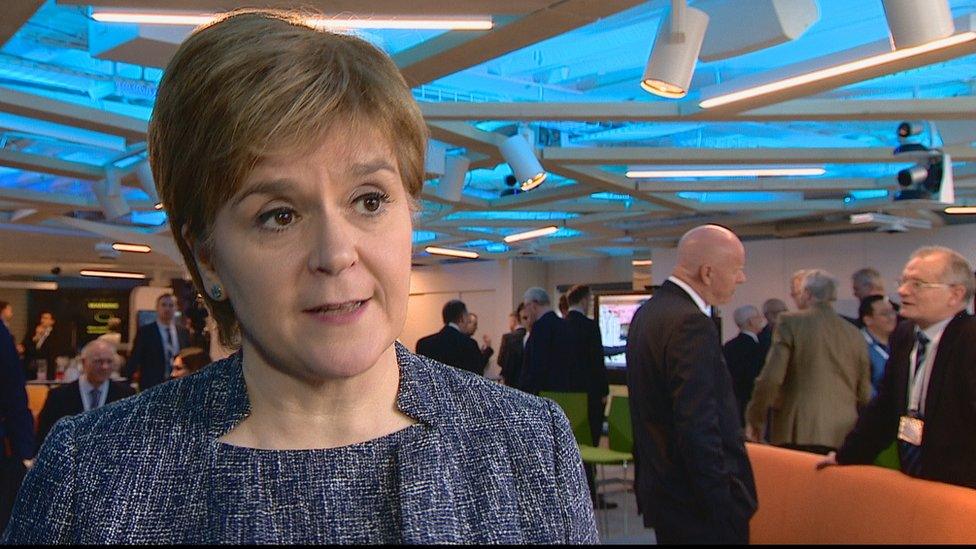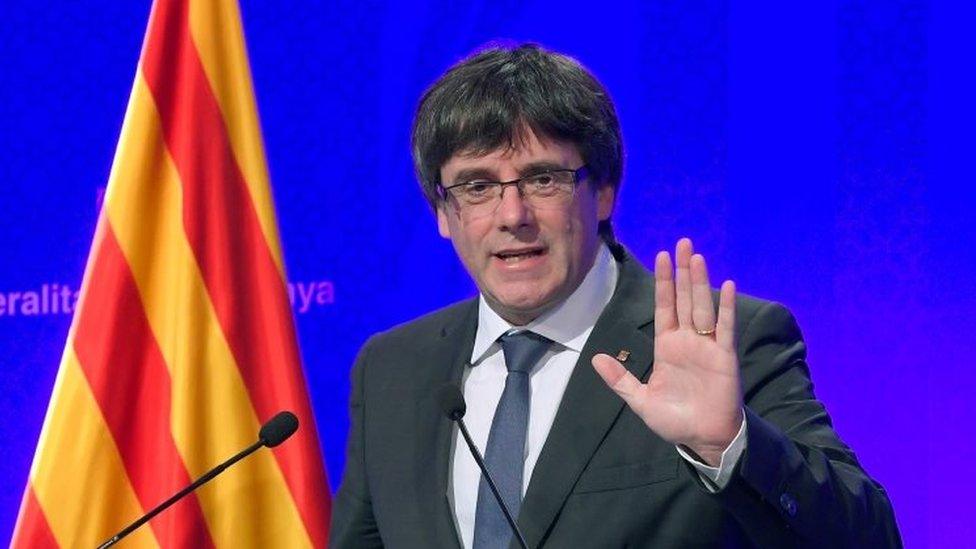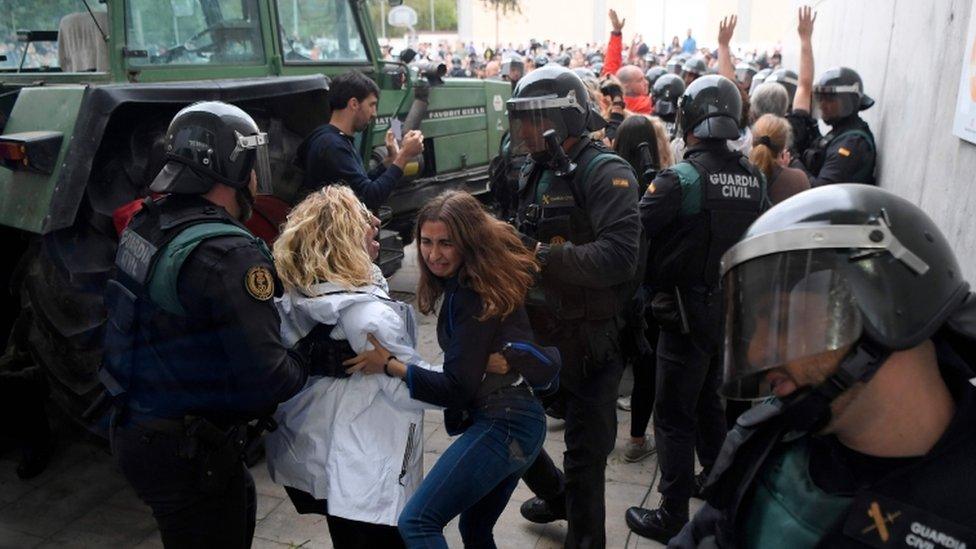Sturgeon: Strength of feeling in Catalonia 'cannot be ignored'
- Published

Ms Sturgeon said "any democrat" should condemn the violent scenes seen in Catalonia
The "strength of feeling" expressed in Catalonia's independence referendum "cannot be ignored", First Minister Nicola Sturgeon has said.
Almost 900 people were hurt as Spanish police tried to stop the contested vote going ahead on Sunday.
Catalan officials say voters overwhelmingly backed secession, but Madrid refuses to recognise the poll.
Ms Sturgeon said talks must be held to find a solution which respects both the rule of law and democracy.
The poll had been declared illegal by Spain's constitutional court, but thousands of independence supporters occupied schools and other buildings designated as polling stations in order to keep them open.
Some of these were shut down by riot police, who seized ballot papers and fired rubber bullets during violent clashes with protestors.
More than 2.2 million people were reported to have voted, with just over 90% of those said to have backed independence. However the Spanish government has insisted that "there has not been a referendum on self-determination in Catalonia".
The matter is set to be discussed at Holyrood, with ministers to answer a topical question from SNP MSP Sandra White, who was in Catalonia alongside former Presiding Officer Tricia Marwick on Sunday.
'Strength of feeling'
Speaking in Aberdeen, Ms Sturgeon told BBC Scotland that it was down to the Spanish and Catalan governments to find a way forward, but said the international community could not ignore the matter.
She said: "Despite all of the challenges and the horrendous scenes we saw in Catalonia yesterday, the overwhelming majority of those who voted voted for independence. Spain maintains the view that that vote was not legitimate and legal, but that kind of strength of feeling cannot simply be ignored.
"I think what's really important now is that there is dialogue and a way forward is found that respects the rule of law but also respects democracy and the right of the people of Catalonia to choose their own future, whatever that is.
"What the international community cannot do is ignore the strength of feeling that was expressed. It's for the Spanish and Catalan governments to now hopefully sit down and find a way forward."
Riot police were seen using batons and kicking people to block voting
Ms Sturgeon was critical of the UK government's initial response, with ministers hesitating to criticise the Spanish administration's approach.
Foreign Secretary Boris Johnson said the referendum was "a matter for the Spanish government and people", adding that "Spain is a close ally and a good friend, whose strength and unity matters to the UK".
Ms Sturgeon said: "Whatever anybody's view is on independence for Catalonia, I think every democrat looking at the scenes yesterday in Catalonia should condemn the violence that was so obvious.
"That is not the kind of behaviour and those are not the kind of images that anybody wants to see in a democracy, and the response of he UK government last night I thought was weak in the sense it did not condemn those scenes of violence."
Defence Secretary Michael Fallon has since said he "deplores" violence, "particularly beating up people who were trying to vote". He said this was "not what you expect in a democracy," adding: "I don't think people who are voting should be beaten up."
Asked about the matter at the Conservative Party conference in Manchester, Scottish Secretary David Mundell said: "I'd obviously condemn any violence anywhere.
"Yesterday's scenes were unedifying but clearly this is a matter for Spain, for the Spanish people and the Spanish government and the Catalonians to resolve within Spain, and I'm sure they will look to try and do so."
- Published2 October 2017

- Published1 October 2017
